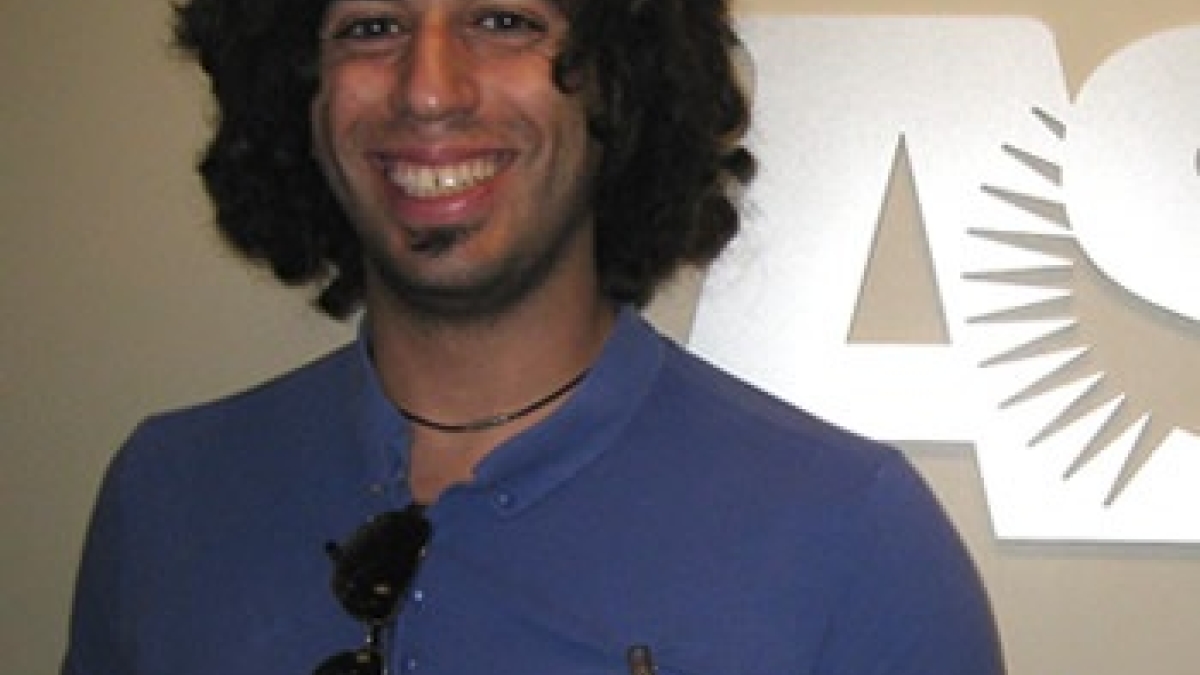Informatics student implements real-world cancer research

In his third year as a full-time employee at the Translational Genomics Institute (TGen), Alexis Christoforides, a first-year doctoral candidate at Arizona State University’s Department of Biomedical Informatics, renders class work to real-world application.
Christoforides began his relationship with TGen as an intern during his senior year as an undergraduate computer science major at ASU’s Ira A. Fulton School of Engineering.
Established in 2002 by President and Scientific Director Jeffrey Trent, TGen applies innovative advances arising from the Human Genome Project to discover the molecular basis of disease, identifying factors contributing to disease progression and severity, and accelerating new drug development to advance clinical treatments for patients. TGen is an institutional partner of ASU BMI.
TGen's research focuses on a variety of diseases, including Alzheimer's, autism, diabetes and multiple subtypes of cancer.
Christoforides focuses on cancer research through the lens of algorithm and data design. Currently he is completing a project that detects mutations in a cancer patient's tumor. Information from the DNA can point to the cause of the disease as well as potential treatments. TGen researchers are already employing the code in a proactive bench-to-bedside manner that can guide clinical decision-making.
Christoforides describes projects at TGen as “intimate and specialized,” giving him the freedom to implement and design his experiments with a unique approach.
Despite facilitating independence, projects are symbiotic in nature. Christoforides said he often seeks feedback from colleagues, and in turn has been called upon for assistance.
His next project is to create a knowledge base of cancer genomic data.
“My boss [at TGen] has this contagious enthusiasm,” Christoforides said. “He helped me be able to stay working at TGen full-time, and to be a student as well.”
Interns and employees at TGen have the supplementary opportunity to attend external conferences relating to the field.
“It’s cool to read papers from people you’ve met [at conferences] or vice versa,” Christoforides said. “Some researchers you meet at conferences are sometimes willing to help and collaborate on your own research.”
Internships at TGen are available in all areas of translational bioscience: laboratory and clinical research, computational biology and bioinformatics, mathematics and statistics, and research administration.
There are two routes for students to take to be involved at TGen:
- The Helios Scholars Program at TGen is a paid, eight-week summer internship in biomedical research open to Arizona high school, undergraduate, graduate and medical school students. Interns work full-time on a research project under the mentorship of a TGen scientist to unravel the genetic components of diabetes, neurological disease and cancer.
- Academic year internships are prearranged and performed under the supervision of TGen personnel. Internships for qualified high school, undergraduate and graduate/medical students are available in Communications, IT, Education & Outreach, Business Development and Regulatory Affairs departments.
Noting TGen as a friendly environment that encourages professional growth, Christoforides would recommend anyone interested in bioinformatics or genomics to consider TGen.
"There is no better place to be in Arizona," he said.